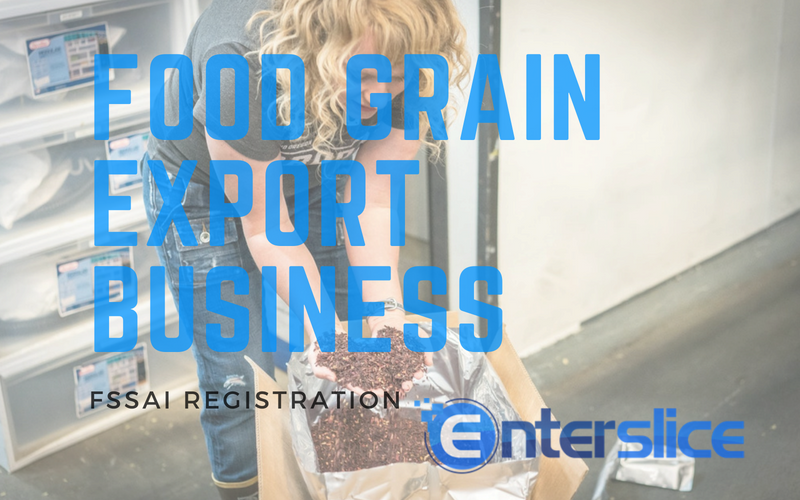In India, food business has witnessed drastic growth. The food sectors have emerged high-growth and high-profit sector. The food business is actually easy to start but need to aware about the legal licensing requirement. It is considered as one of the best business to start. One should keep below points in mind before starting a food business:
Finalise type of Business:
The very first step is to decide the type of business in the food sector. There needs to be a proper homework before you begin with any kind of business. Once you’re ready with your resources and plan of execution, you will have to look around the legal license or NOC required to avoid any legal complications.
Registration of Business Entity:
The next step is to register business entity and law. There is a various option available to the Entrepreneur like registration as Proprietorship, Partnership, Limited Liability Partnership, Private Limited Company or One Person Company. By registering the entity under law one can avoid the legal compliance.
The factors like the number of partners/investors, Business size, expectation turnover, future plan etc. helps to decide the type of entity. Each of the types contains its own advantage like if there are two or persons comes together can start a restaurant by registering as LLP or private company and can get benefits like limited liability, continuous existence or separation of business/personal assets. However, such benefits one cannot get by registering as Proprietorship or Partnership. Therefore now a day’s people are going for LLP, the private company, one person Company etc. instead of partnership or proprietorship. Hence, entrepreneur shall be considering the various factors register its business entity under law.
Food License:
One of the mandatory requirement after registering business entity is to obtain them. As mentioned under the act, every food business operator shall get its business registered or obtain a license under FSSAI. The basic motive is to assure the safety. The below are the categories in which license are divided based on the turnover limits:
Basic registration: Turnover up to 12 Lakhs
State License: Turnover up to 20 crores and
Central License: Turnover more than 20 crores.
Failure of FSSAI registration may levy heavy penalties and treated as a legal offense. The license is issued 1 year to 5-year validity.
Health Trade License:
All FBO shall obtain a health/trade license from Municipal Corporation or Health Department of respected state. The license depends on the size of the Business. This license is issued for the term of a one-year which need to be renewed every year. Every state contains its own municipal laws. However, an application can be made online.
Fire Department NOC:
The premises of a food business shall have a proper arrangement of fire security. The owner has to obtain NOC from the fire department by filing an application to the Authority. The Authority after conducting inspection and satisfaction on safety arrangement grant the NOC.
Liquor or Bar license:
If an owner is planning to start a business as a restaurant and serving liquor than he has to obtain the liquor license. The application shall be made to the Excise Commissioner of the city/region of the state for liquor license L-4 (L-17 as per new excise rule).
Environmental Clearance:
Food business shall have to ensure that their activities are not involved in violating pollution norms by obtaining a NOC from the pollution board of the city/state.
Insurance required:
The FBO has to take insurance for public liability, Product liability, fire policy & for building & Asset. Insurance policies can be obtained from any insurance company providing such insurance.
GST Registration:
A food business crosses the threshold limit mentioned than have to register its business under Goods and Service Tax. Restaurant voluntarily also can get register under Goods and Service Tax to enjoy the benefits of credits.
Trademark Registration of Food Business:
Trademark is a unique identity registration. Trademark creates brand image among customers. In case owner wants to start opening a chain or of its food business than trademark helps to grow faster. Trademark registration would provide ownership over the intellectual property created and help deter the use of the branding by competitors.
Returns required to file by FBO?
Every food manufacturers, labelers, re-labelers, packers, re-packers and importers are required to file an annual return either electronically or in physical form as may be prescribed by the concerned Food Safety Commissioner, in Form D-1, on or before 31st May of each year to the Licensing Authority with respect to the category of food products sold / manufactured by him during the previous financial year.
All FBO’s should note that a separate return is required to be filed for every license issued under the Regulations, irrespective of whether the same Food Business Operator holds more than one license.
Delay or non-filing of returns may levy penalty on FBO.
Conclusion:
Starting
a food business in India is undoubted great thought. Today, start a food a
business in India is not a rocket science but need to aware about the legal
compliance to comply since it may affect the food business and may charge have
penalties. So it is advisable to every food business to get its business
registered under the law and comply the provisions timely.
Source by: https://enterslice.com/learning/legal-requirements-for-starting-a-food-business-in-india/
Source by: https://enterslice.com/learning/legal-requirements-for-starting-a-food-business-in-india/





No comments:
Post a Comment